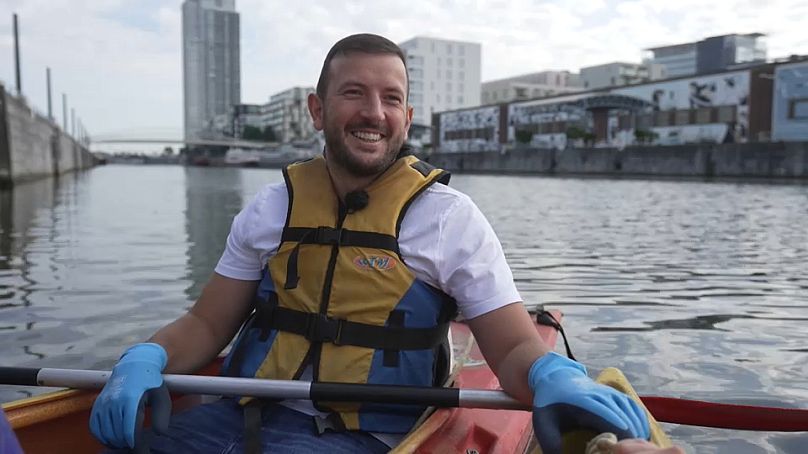Ocean talks with Virginijus Sinkevičius, the European Commissioner for the Environment, Oceans and Fisheries about single-use plastics, changing individual behaviours, and the importance of businesses being on board.
A future where our oceans are filled with more plastic than fish could be our reality by 2050.
 ADVERTISEMENT
ADVERTISEMENT
 ADVERTISEMENT
ADVERTISEMENT
More than 8.3 billion tonnes of plastic have been produced since the 1950s, and much of it has ended up decomposing into micro and nanoplastics, infiltrating water streams, soil, and eventually, our oceans.
But Europe is spearheading efforts to make a change. Through its Marine Strategy Framework Directive and Zero Pollution Action Plan, the EU aims to reduce sea-based plastic litter by at least 50% and environmental microplastics by 30% by 2030.
The latest data even shows a decline in plastic concentrations along most EU coastlines. Since 2021, several commonly littered single-use plastic items have been banned.
In Brussels, Euronews Ocean talked with Virginijus Sinkevičius, the European Commissioner for the Environment, Oceans and Fisheries, as he joined in on a canal clean-up event organised by the local activist group Canal It Up on International Coastal Clean-up Day.
"I think we all share responsibility for the city that we all love living in, and for how the city looks, because, you know, this canal is a part of the city's face. We're all responsible for the planet that we live on," Virginijus Sinkevičius explained.
"It all starts, of course, from our behaviour as an individual, but also from the policies and business initiatives. I think we are all in this game together, and we can top up if we have this kind of willingness to truly get rid of unnecessary packaging, collect it better, recycle it better, and reuse more, we should do so — with good policies, with people willingness to act, and of course, businesses being on board.
"We see improvement, but we also see that plastic packaging is increasing. So we see that member states did a relatively good job with recycling, but it's not enough.
"We need a better implementation of the ban on single-use plastics in some member states and also see for additional single-use packaging, which is also absolutely useless for people — to get rid of it.
"And then, you know, we would enjoy more kayaking than picking up trash at the end of the day," he concluded.













